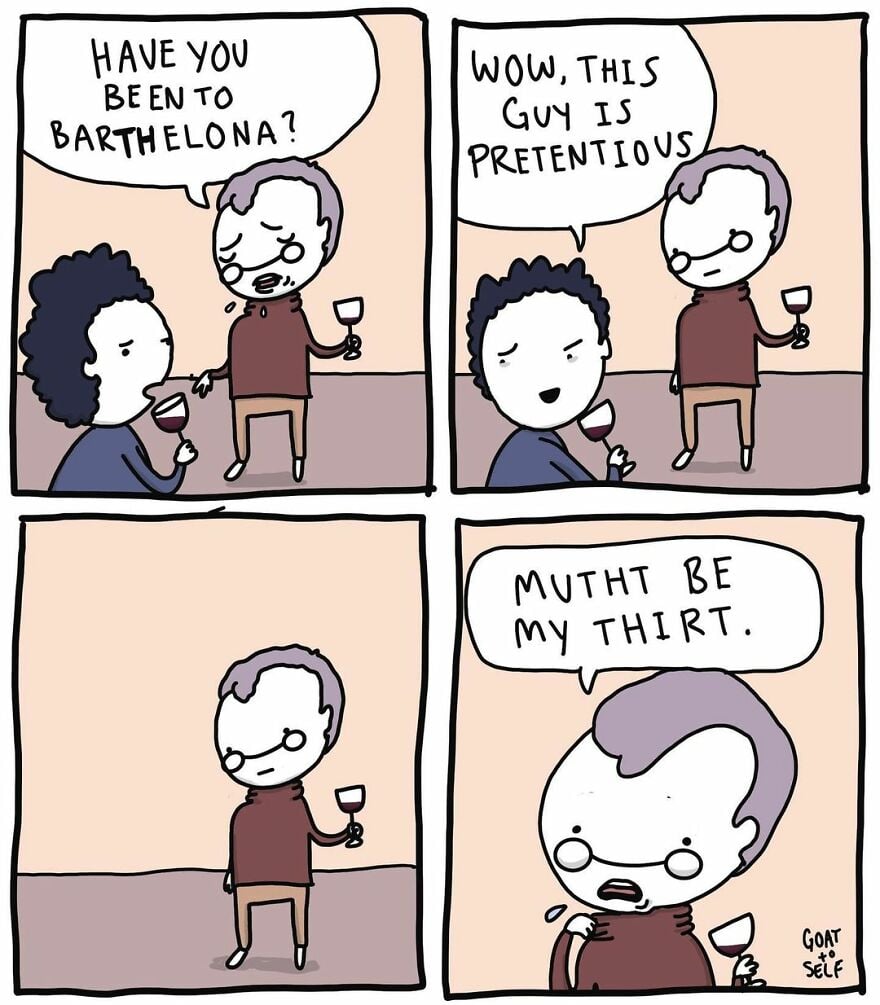this post was submitted on 07 Jan 2025
619 points (96.1% liked)
Comic Strips
15739 readers
1517 users here now
Comic Strips is a community for those who love comic stories.
The rules are simple:
- The post can be a single image, an image gallery, or a link to a specific comic hosted on another site (the author's website, for instance).
- The comic must be a complete story.
- If it is an external link, it must be to a specific story, not to the root of the site.
- You may post comics from others or your own.
- If you are posting a comic of your own, a maximum of one per week is allowed (I know, your comics are great, but this rule helps avoid spam).
- The comic can be in any language, but if it's not in English, OP must include an English translation in the post's 'body' field (note: you don't need to select a specific language when posting a comic).
- Politeness.
- Adult content is not allowed. This community aims to be fun for people of all ages.
Web of links
- !linuxmemes@lemmy.world: "I use Arch btw"
- !memes@lemmy.world: memes (you don't say!)
founded 2 years ago
MODERATORS
you are viewing a single comment's thread
view the rest of the comments
view the rest of the comments

I mean, I get it to an extent. I'm much more in favor of linguistic descriptivism rather than prescriptivism, so I acknowledge that terms and pronunciations can develop over time and are not wrong.
If someone pronounces "Beijing" in English with a softened J/G sound (like "beige") and someone else corrects them with "Oh do you mean bei-JING", truthfully neither are wrong. The correct pronunciation is whatever people understand and accept.
On the other hand, suggesting that there is a single correct/more authentic pronunciation (particularly in cases where it may not even conform to standard English phonemes) veers into prescriptivism and has problematic connotations.
Hm, but reacting negatively to someone pronouncing it, for lack of a better term, the original way IS presciptivism. This isn't about someone who pronounces a Spanish word the Spanish way criticizing someone who pronounces it the English way, but the other way around.
I think it depends on intent and what one's native language is. Basically, why would someone opt to pronounce a word a certain way if they know there's differing standards.
No one can help accents, so if for example I was natively Spanish speaking and, while speaking English, I pronounced some Spanish-derived loanwords with the occasional rolled R, no one should be faulted for that.
But if I grew up speaking English natively, learned Spanish after the fact, and then I opt to use the Spanish pronunciation of Spanish-derived terms while speaking English, that comes across as pretentious. I used to pronounce these words one way, but then I gained knowledge, and now I self-correct because I (consciously or subconsciously) want to signal to others that I know more about a language than they do. That act of self-correcting would be an implicit declaration that there is a more correct way to pronounce these words that people who know the difference should use, and pushes back on the idea that the pronunciation of a loanword in the destination language can be equally valid.